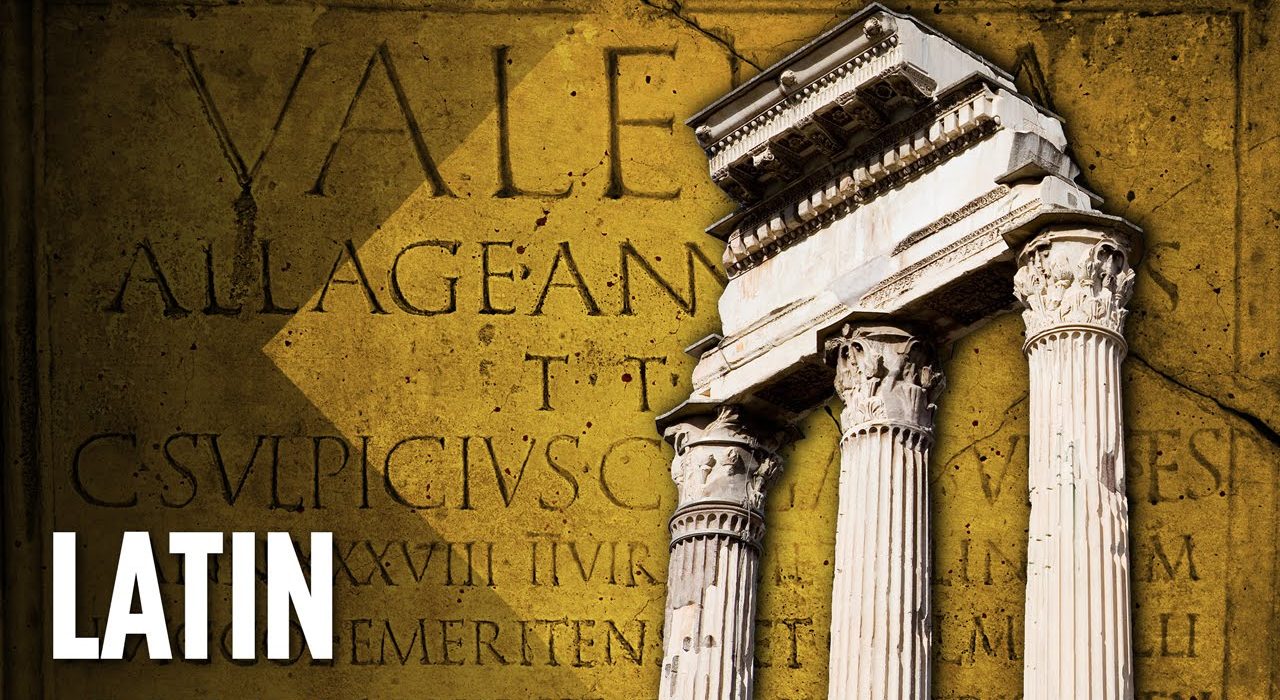June 11, 2019 // Schools
Bona fide: Our Lady of Good Hope students learn Latin
By Annie Obergefell
Through its classical curriculum, one elementary school in the Diocese of Fort Wayne-South Bend continues to prove that while Latin may be a dead language, its relevance in education is very much alive.
Located on the northeast side of Fort Wayne, Our Lady School first opened its doors to students in 2016, providing education for children in kindergarten through eighth grade. The school is unique in offering a classical curriculum that emphasizes a holistic approach to student development through education in liberal arts, mathematics and Latin.
Considering that Latin is rarely spoken in a traditional sense outside the Catholic Church, some might question the benefits, if any, to learning the language. How does Latin prepare kids for high school and college? When will the students use it in the real world? And what if the child isn’t Catholic?
Learning Latin offers value to the cognitive development of a child — so much so that every classical curriculum includes the language, even at non-Christian schools. According to Memoria Press, which is the classical curriculum used at Our Lady School, learning Latin is one of the most effective ways to gain an academic vocabulary, learn the formal system of grammar across any language and provide students with the best training in critical thinking skills.
“Latin forms the brain to work in a certain way,” said Julianne Grignol, seventh-grade teacher at Our Lady. “It’s very structured. There are strict grammar rules, and there are only a few exceptions. Learning Latin early on actually helps students understand English grammar because the rules in Latin are very clear.” Learning the language eases the transition to learning English’s more complex structure.
Grades K-2 focus primarily on learning Latin vocabulary through songs and repetition. Students at this level also make connections to the etymology of English words: “constellation,” for example, contains the Latin word for star, “stella.” Older students in grades 3-8 develop grammar skills.
Even more, the Romance languages — Spanish, French, Italian, Portuguese and Romanian — all originate from Latin. This linguistic relationship has helped Latin students test out of introductory romance language courses in high school and college.
Liz Sorg, a sixth-grade teacher at Our Lady, explained, “When I give quizzes, I ask students to think of words that are derived from the Latin language and write them down. They’re thinking about the English language and why Latin is effective. And Latin really is effective. You use it in everyday life whether you realize it or not. That’s the biggest impact for them at such a young age. They want to know how it applies to them.”
Lisa Craw, a first-grade teacher at the school added: “That’s the wonderful thing about a classical curriculum. You’ve got the different puzzle pieces, and you’re putting them together. With other programs, information is often spoon-fed. Here, students are able to apply logic from Latin down the road to other subjects they’re learning.”
Beyond logic, does learning Latin enhance faith development? According to Grignol, students are able to understand Latin responses during Mass, and those types of real-life connections motivate them further in their education. Students recently learned how to recite the rosary in Latin.
“Latin is still spoken in the Vatican,” Grignol said. “Catholic means universal. It’s the universal Church, and Latin can be used in any church around the world. It’s very unifying in that way.”
One of the hallmarks of a classical education is teaching students how to think critically and solve problems instead of how and what to study for a test. Latin provides an ideal subject for building the foundational structure of logic and critical thinking.
“Classical education is not a utilitarian education,” Grignol said. “The focus at this level is not so students can go and get a job one day. That’s a by-product, and our students will be good, critical thinkers who will be able to do that. But classical education trains their brains to be lifelong learners, because God gave us our minds to use.”
The best news. Delivered to your inbox.
Subscribe to our mailing list today.






